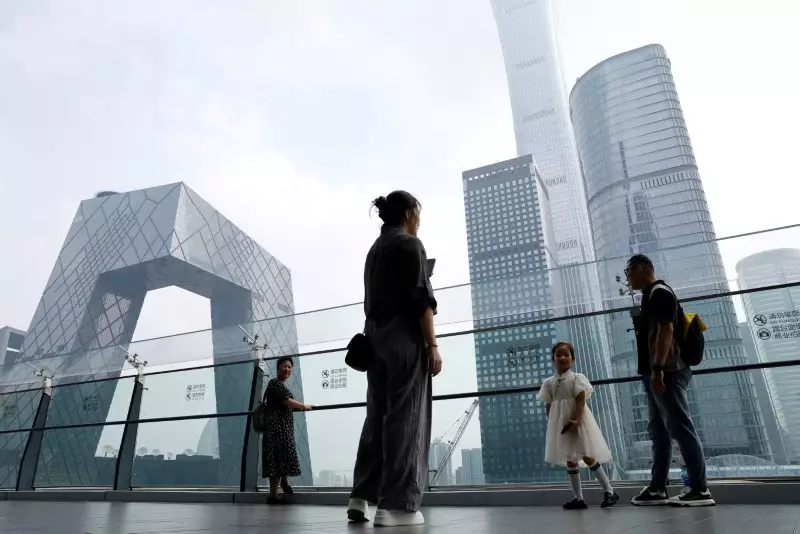The recent economic data from China has painted a grim picture, with indicators showing a further slowdown in the growth of the world’s second-largest economy. New home prices, industrial output, export, and investment growth have all faced setbacks, pushing policymakers to consider implementing more stimulus measures to reach the targeted growth rate of 5% for the year. The pressure is mounting on Beijing to take immediate and significant policy interventions to prevent a downward spiral in consumer and business confidence.
Experts and economists are calling for Beijing to widen the budget deficit to 4% of GDP, up from the planned 3%, to inject much-needed liquidity into the economy. With the current economic performance falling behind targets, policymakers are left with no choice but to ramp up stimulus measures to kickstart growth. The fear of missing the growth target of 5% is becoming a real possibility unless decisive action is taken soon.
While traditional infrastructure spending has been a key driver of growth in the past, experts question its efficacy in the current economic climate. China’s focus on advanced manufacturing has also come under scrutiny due to trade tensions and concerns over overcapacity. Analysts suggest that policymakers need to shift their focus towards supporting domestic demand to achieve the growth targets. The reliance on manufacturing and exports alone is no longer sustainable for the Chinese economy.
As consumer spending weakens, e-commerce giants in China are forced to offer heavy discounts to attract shoppers, putting pressure on profit margins in the retail sector. Calls for direct support to consumers worth at least 1 trillion yuan ($139 billion) have resurfaced, with suggestions of issuing cash or vouchers to stimulate spending. While some experts believe that such measures could provide a temporary boost to consumption, others are skeptical about the long-term impact on the economy.
The economic challenges facing China are complex, with a slowdown in growth, rising inflation, and weakening consumer spending. Policymakers in Beijing are facing a tough decision on how to stimulate the economy effectively while avoiding a debt crisis. The need for innovative and targeted stimulus measures is crucial to prevent further economic downturn and restore confidence in the market.
The economic challenges facing China require decisive action from policymakers to steer the economy back on track. With pressure mounting to achieve growth targets amidst a slowdown in key indicators, Beijing must carefully consider its stimulus measures to ensure sustainable and balanced growth in the long term. The road ahead may be challenging, but with bold and strategic interventions, China can overcome its current economic hurdles and emerge stronger in the global market.

